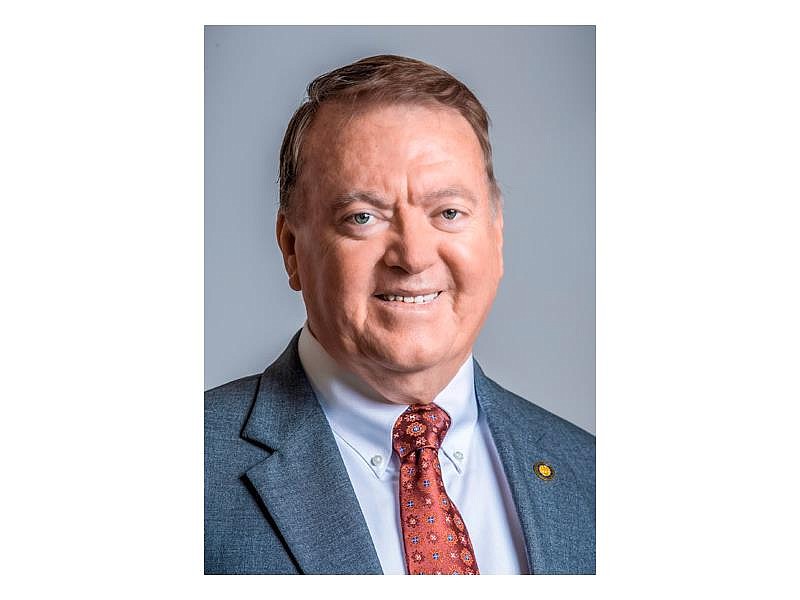Much of what we know about Cherokee history and the Trail of Tears American Indian removal - of which Chattanooga was pretty much the epicenter - we owe to one man who made studying this history a large portion of his life.
But Dr. Duane King, a Bristol, Tenn., native who taught at the University of Tennessee at Chattanooga in the 1970s and eventually became a widely recognized authority on American Indian history and culture, died Sept. 17. He was 70.
In the same week Chattanooga lost this very important scholar and historian of all things Cherokee and Trail of Tears, the general management plan for the Moccasin Bend National Archaeological District received final authorization from the National Park Service.
The authorization has been years in the making - actually more than six decades, if you count the steady conversation of Chattanoogans, including King, clamoring for a park to happen on Moccasin Bend.
In fact, to hear local supporters and builders of the Moccasin Bend Archeological District and various Trail of Tears historical sites here, King - who later became the executive director of the Helmerich Center of American Research at the Gilcrease Museum in Tulsa, Okla., - was not only the earliest historian of all things locally Cherokee, but often was the glue that held together the people working on those projects.
Jay Mills, a longtime Moccasin Bend supporter, recalls that King came back to Chattanooga often to help, and he became a calming voice and a great connector. He not only put flesh on the bones of history, but introduced local committee members to today's tribal leaders and must-have endorsers for our myriad American Indian historical efforts.
"He knew who all needed to be brought into the tent to promote the project," Mills said. "He was probably the most important person advising us."
Jim Ogden, historian and park ranger for the Chickamauga and Chattanooga National Military Park - of which the Moccasin Bend Archeological District is a part - said "much of what we know about Chattanooga's Cherokee and Indian removal history" is thanks to King.
"All the research he did on the Cherokee and the Removal, generally and even specifically to Chattanooga is, I think, his greatest legacy," said Ogden. "While others have and are doing research, Duane's research is still today, in so many ways, still the scholarly basis on which the still-developing Trail of Tears National Historic Trail is based. His knowing, guiding, inquiring hand will be missed."
Zach Wamp, former 3rd District congressman, also gave King credit for helping shape his legislation that created the park and practically doubled size of our national Trail of Tears preservation efforts.
"He was helpful on Moccasin Bend by testifying at the national parks subcommittee of the House resources committee when I was moving the legislation," Wamp said. "He came and gave expert testimony on the historical significance of Moccasin Bend, which he knew as well as any living American."
Wamp said King also helped when he rewrote the National Trail of Tears legislation.
"He introduced me to the [John] Bell and [John] Benge routes, which were omitted from the original 1987 Trail of Tears legislation," Wamp said. "He was also just a really humble, sweet, historian - a great man."
The Moccasin Bend Archeological District was signed into law in 2003 by President George W. Bush, and the modernized National Trail of Tears Act was signed into law in 2009 by President Barack Obama.
Moccasin Bend is not just another piece of pretty land. The Bend's American Indian mounds and village sites represent 12,000 years of human habitation - along with a historic Trail of Tears route and a number of Civil War cannon mounts.
What's more, the Bend's future historical value to Chattanooga is just beginning.
Already, about a million people visit Chickamauga and Chattanooga National Military Park each year. They spend about $66 million, creating at least 800 private-sector jobs.
When Moccasin Bend is complete and open, those visitors will have another full day's touring available in the heart of Chattanooga - potentially another several million dollars more and perhaps another 600 to 700 jobs here. Even conservative estimates have put increased visitors and visitor spending at the Bend at around a quarter of the Chickamauga numbers.
Hopefully, this park will not be decades more in the making - delayed and diminished each year that our city and Hamilton County officials don't get together to move a police firing range off the bend and turn that prime recreational land over to the park.
No doubt the late Dr. King would be extremely pleased with the latest milestone for Moccasin Bend park, the completion of the general management plan.
But to fully realize the park plan's vision and the legacy of tireless advocates and community leaders like Dr. King, let's relocate the firing range sooner rather than later and let the Tennessee Riverwalk meet the park.
